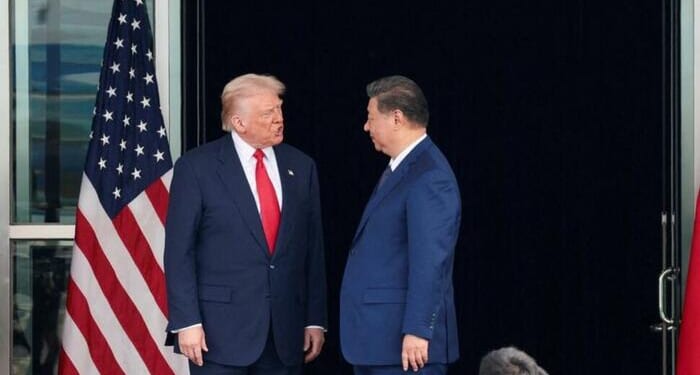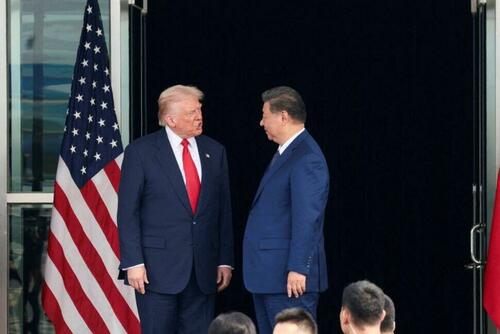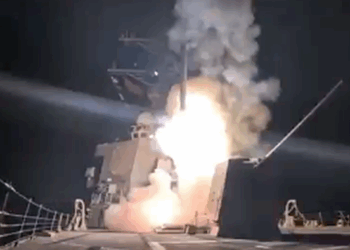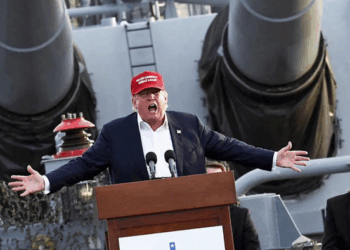At a moment US-ally Japan is in a rare full-blown diplomatic and (increasingly) military showdown with China, the country’s President Xi Jinping held a phone call with US President Donald Trump on Monday, both sides have confirmed. The last time the two leaders met and talked in detail, which was on the sidelines Asia-Pacific Economic Cooperation (APEC) summit in late October, they had declared a “tariff truce” in an effort to de-escalate trade tensions.
But the Taiwan issue is once again taking center stage, at a moment Tokyo has quite provocatively decided to place medium-range missiles on an island which lies less than 70 miles east of Taiwan. The White House has so far into its term been relatively quite on the issue.
Trump, rather than stoking tensions further, appears to be striking a conciliatory position:
Chinese leader Xi Jinping and US President Donald Trump discussed bilateral cooperation and the issue of Taiwan in a phone call on Monday, Beijing’s state news agency Xinhua reported.
Xi told Trump that the two countries should “maintain momentum in ties” after the two leaders met last month in South Korea, and “stressed that Taiwan’s return to China is an important part of the post-war international order”, according to Xinhua.
And so it appears Trump is content to maintain Washington’s longstanding doctrine of ‘strategic ambiguity’ regarding the Taiwan crisis. Trump’s Taiwan policy has been a big question mark, but arguably this is precisely what strategic ambiguity seeks to convey.
Still, MIT has featured some recent analysis, also citing the non-interventionist Quincy Institute, suggesting Trump could be ready to abandon the US policy which has been in place for decades:
Despite uncertainty in the Trump administration’s China policy, dangerous trends across the Taiwan Strait continue to raise the chance of crisis. Tensions are deepening in the overall U.S.–China relationship, and the credibility of Washington’s One China policy and Beijing’s support for peaceful unification is mutually eroding. While China continues to expand its military capabilities and intimidate Taiwan, the U.S. is keen to mobilize its regional alliances to enhance warfighting against China.
These developments raise the question of whether the longstanding U.S. policy of strategic ambiguity, which contains the possibility of U.S. military intervention to defend Taiwan against China, remains the best approach to preventing war over the island.
Quincy Institute senior research fellow Michael Swaine recently published two policy briefs arguing that Taiwan is not a sufficiently vital interest for the United States to go to war over. He contends that Washington should begin transitioning to a policy beyond strategic ambiguity — a new approach that seeks to enhance support for Taiwan but rules out the possibility of joining a war over the island.
And Nikkei has recently published a report in a similar vein, suggesting Trump could be listening more to those voices which urge a more hands-off approach in China’s backyard, and that the US would be unwilling ultimately to commit military forces to aid in the self-ruled island’s immediate defense:
Trump’s rhetorical vagueness on Taiwan, compounded by the continued absence of any authoritative policy documents on the topic, has prompted observers to look elsewhere for possible reflections of the administration’s views.
One such report that has gone viral on both sides of the Taiwan Strait came from researchers at my former home organization, RAND. Their report from last month, “Stabilizing the U.S.-China Rivalry,” contained the following sentence within its recommendations: “Stabilizing the Taiwan issue should focus on creating the maximum incentive for Beijing to pursue gradual approaches toward unification [my emphasis added].” Although it seems like the authors are advocating Chinese unification with Taiwan, this is hardly the case. Rather, they were highlighting the importance of slowing Beijing’s unification efforts down and basically encouraging Washington to trick China into thinking this is possible, even if the U.S. would still severely complicate forceful unification, to buy more time for the uneasy status quo to persist.
Despite Trump not having raised the issue much with Xi, there have still been a couple of Trump-approved weapons sales to Taipei of late. For now though it looks like Trump is playing nice with Xi on the issue, given the sensitivity of the subject could sour positive momentum in trade relations.
Loading recommendations…

















